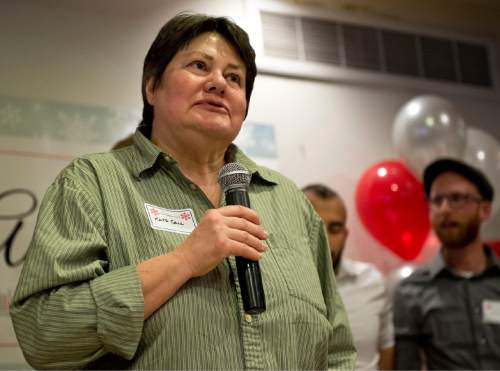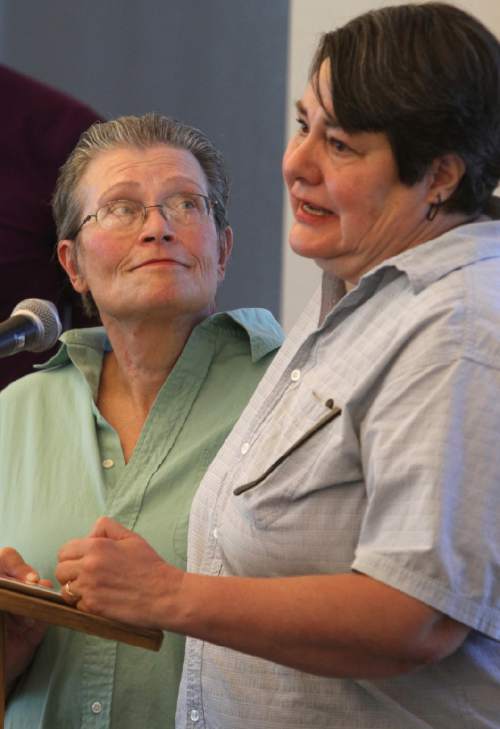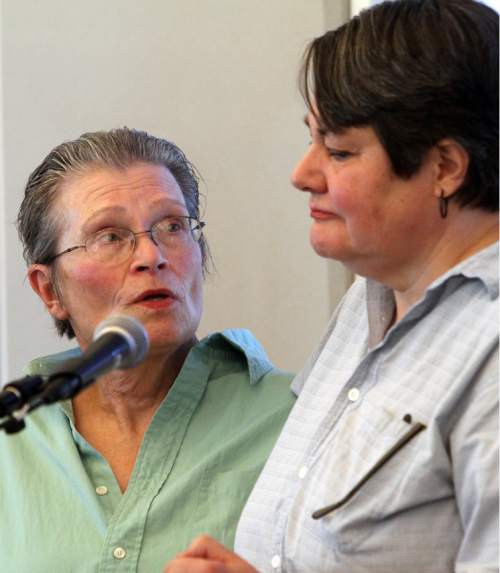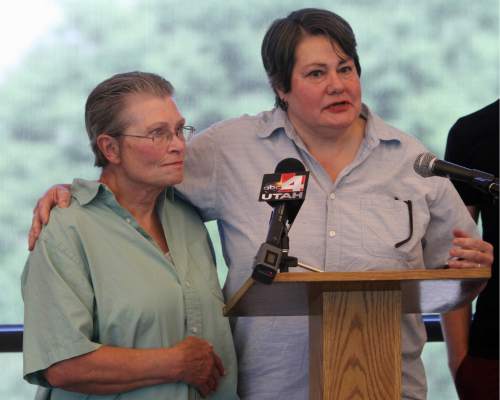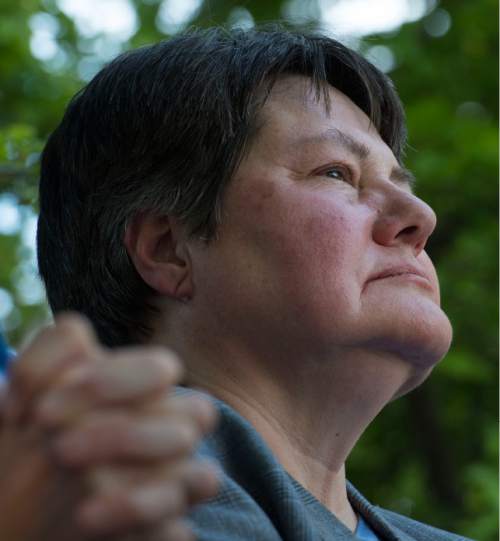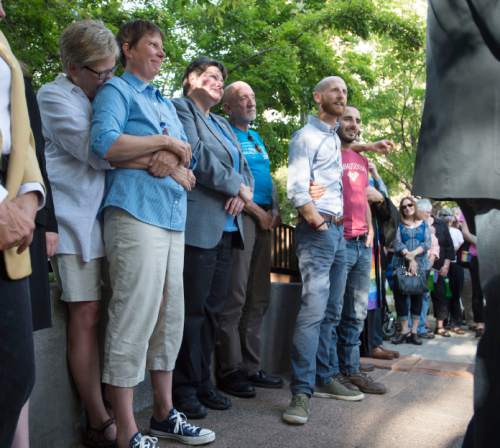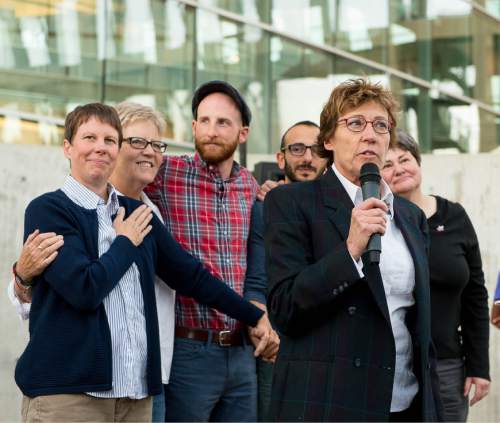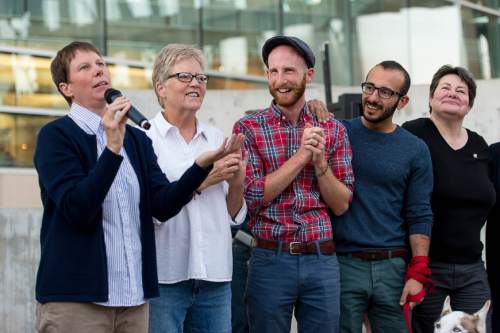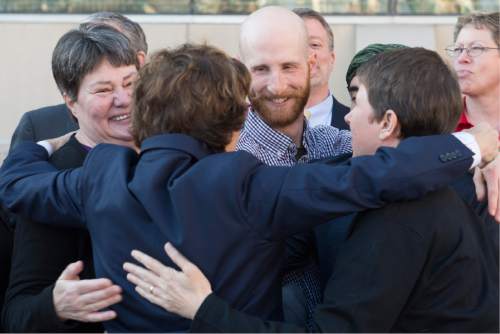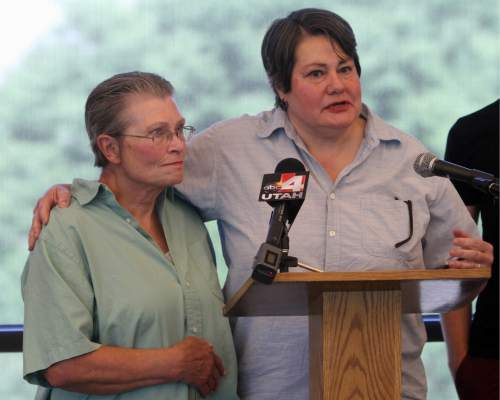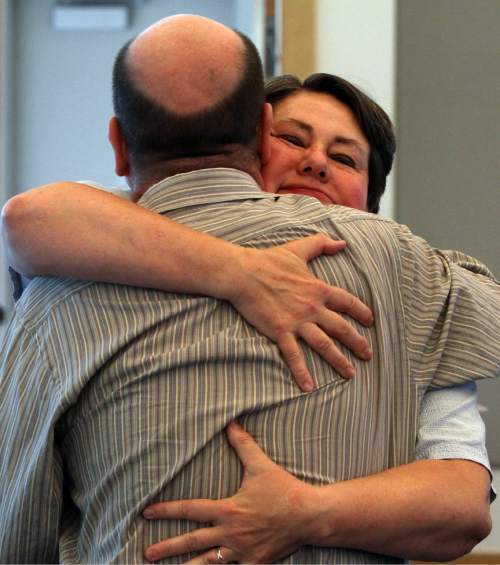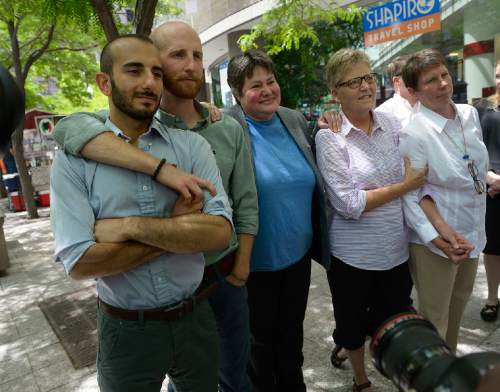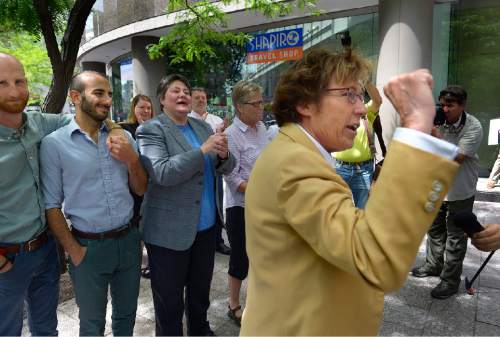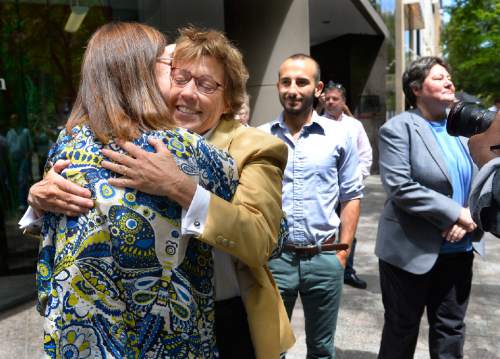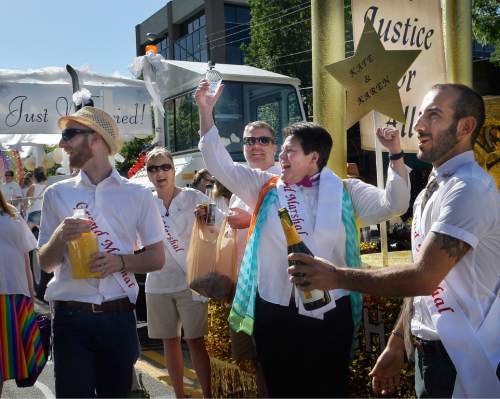This is an archived article that was published on sltrib.com in 2014, and information in the article may be outdated. It is provided only for personal research purposes and may not be reprinted.
By the time Kate Call and Karen Archer took up the fight for same-sex marriage, they were all too familiar with the suffering that inequality and rejection can bring.
Call, 63, had been painfully excommunicated from The Church of Jesus Christ of Latter-day Saints as a young adult and later lost a job with the national parks in southeastern Utah for, she believes, being a lesbian. More than once, she said, she felt enough desperation to contemplate suicide.
Archer, 67, had lost one longtime partner to suicide and a second to cancer. Unmarried, she could lay no legal claim to any death benefits, including one partner's military benefits. She had no rights to them.
The couple, who share a deep curiosity for learning and life experiences, met through an online-dating website in 2010. At the time, Call, a former sheep rancher, was managing a rural University of Utah research site in Moab, and Archer, a University of Texas-trained OB/GYN forced into retirement due to illness, was living in Colorado. After Archer made a two-week visit to Moab in 2011, their fate was sealed.
"As soon as we got together, Karen made a specific point of saying, 'We have to get married,' " Call said. "We thought we needed to protect ourselves in every way we can."
The couple made a joint will and put legal medical directives in place, but worried it wouldn't be enough to protect them. They married in Council Bluffs, Iowa, on July 11, 2011. The union wasn't recognized in Utah, but they had hope. One by one, states were making gay marriage legal.
"We thought, 'OK, the trend is, we're making advances,' " Call said.
Call then spotted an interesting thread in the comments attached to a news story she was reading online: Someone in Salt Lake City was talking about a legal challenge to Utah's ban on same-sex marriage.
She went to a meeting at Salt Lake City's downtown library — attended, she says, by "gay guys and me" — and then rushed home to Archer, whose immune system was so weakened by an experimental treatment for her chronic illnesses that she was homebound.
After discussing the brewing lawsuit planned by the fledgling advocacy group Restore Our Humanity, Archer and Call committed to be among the plaintiffs.
"We were the first couple to say yes," Archer said. "Doing this despite the risks was important because we are citizens and human and have the same rights as any other taxpaying legal residents of the U.S."
Sadly, Archer and Call haven't been together to celebrate the triumphs that have come — first from Utah's U.S. District Judge Robert Shelby and later from the appellate court in Denver. Archer's illnesses have worsened and she has been living in Wyoming with a sister who is able to care for her. Call remains in Utah, working at the U., but speaks almost daily with her wife.
Archer, who feared any advancement in marriage laws in Utah would be derailed by politics, was "overjoyed" by the victory.
"I thought [a change in law] would need to be imposed," she said.
Call jokes that she might name her next dog "Shelby" and says the rulings have taught her to believe in her own power to spur change. To remind her of what belief can do, she often wears the pink flying-pig pin that attorney Peggy Tomsic, who argued their case, had made for all involved.
"We were the improbable red sate that opened the door for the rest," Call said. "I'm so proud of that fact."


